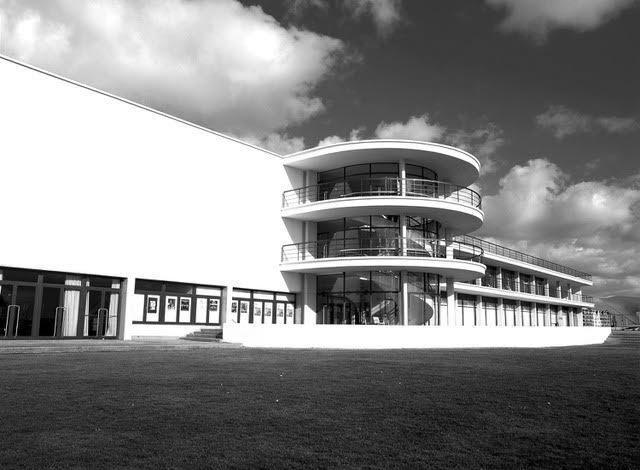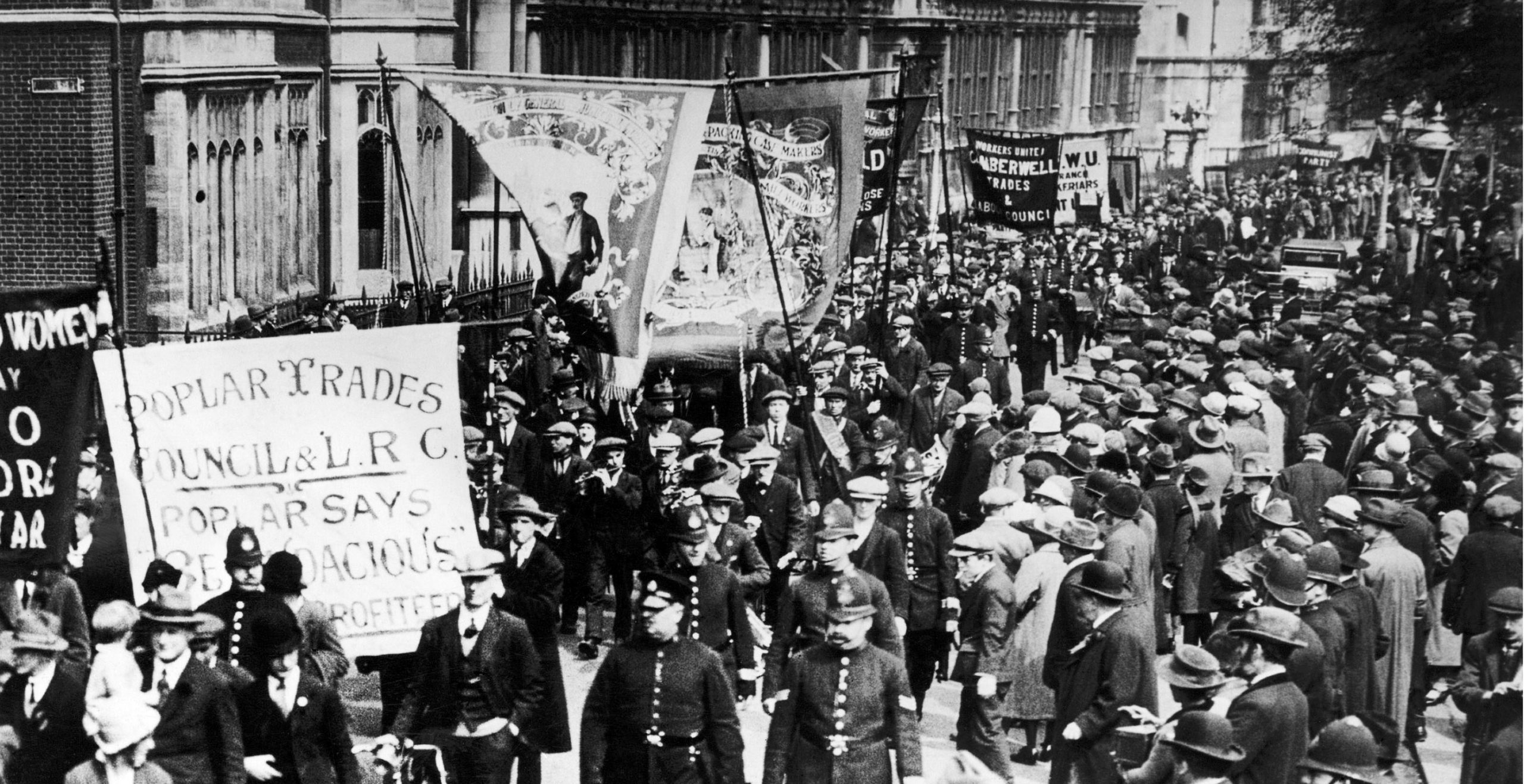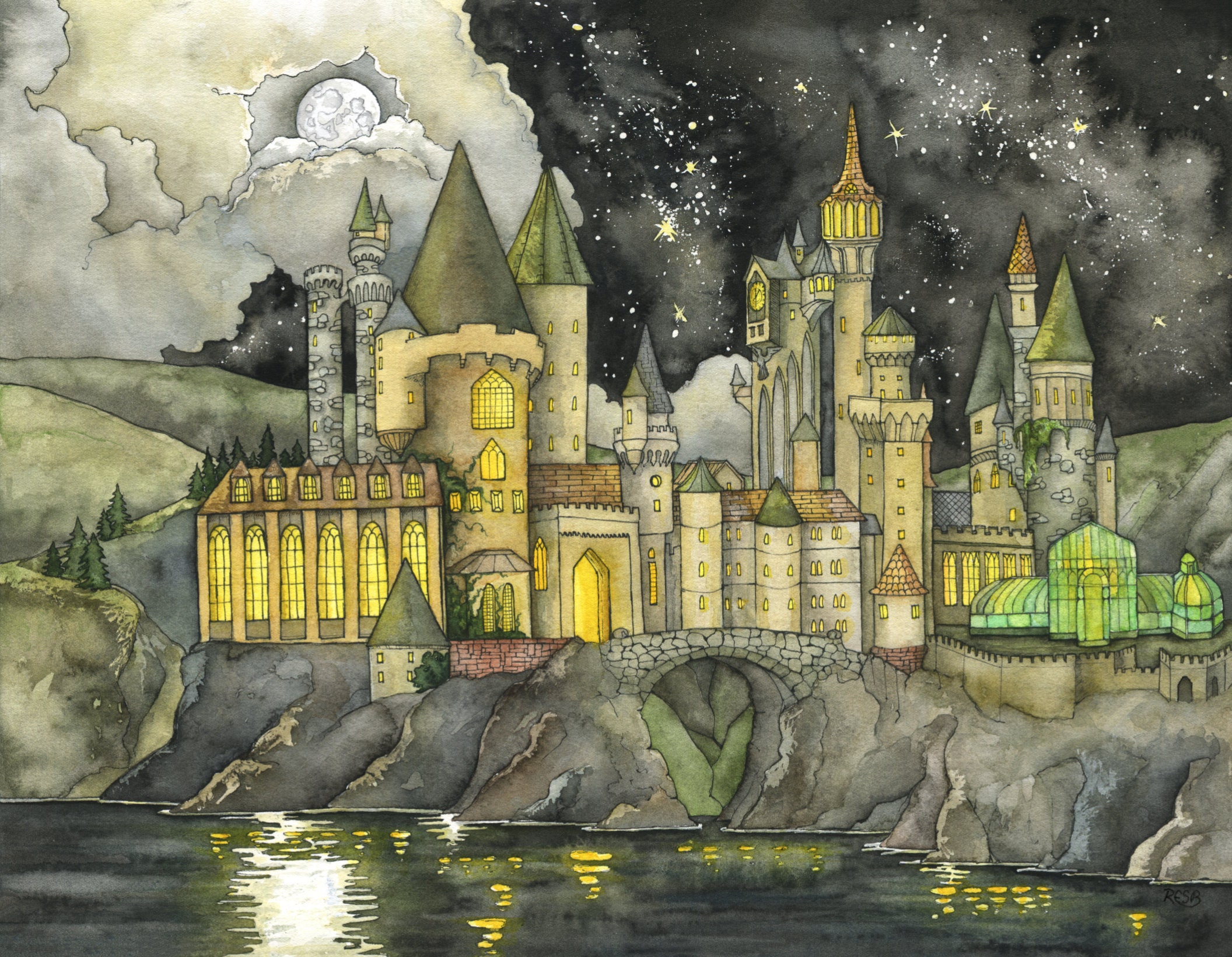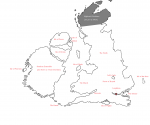- Location
- Op een dag, Nederland.
- Pronouns
- she/her & ne/nem
Notes from Grigori Vladimirovich Berezhnoy, a Russian socialite and amateur politician on a visit to Britain, circa 1966.
“When I visited England [sic], it was a very strange experience. The country at once feels like it never recovered truly from the war against Napoleon and yet feels like it’s on the brink of surprising us all.
The moment I first gazed at an English town, I was amazed. Not at any stunning development, for there were none. Not at any new and modern buildings, for very few existed. What made me amazed was what was happening in that town. There was a general election campaign going on, and it was very different from what I’m used to in Russia. In Russia, one does not stoop down to appeal to the mass. But in England it is different. Politicians are expected to answer to the masses at all times. How anarchic.
There were a plethora of posters on every other brick wall I encountered, and almost all of them were green, for the Liberal Coalition. They are a very unusual party, united not by any economic ideas but by this strange ambiguous idea of what they call a ‘scientific revolution’. When I saw that, I was taken aback because frankly the last time anyone associated science or any advancement with England was when their Queen Victoria was on the throne. Since then, they’ve been consumed by the war which seemed to have destroyed their brain cells for decades.
I was invited by my friend here to what they call a ‘hustings’, and how to describe it? It is utterly alien to any Russian experience, and is this raw experience where the politicians come among the populace, unarmed, unscripted, unbound, with only their wit and quick thinking saving them. I was quite amazed by the Liberal candidate’s performance even if irked at how they avoided economic details, very unimpressed by the Conservative candidate (who apparently was the incumbent legislator) and looked baffled at the socialist candidate for their strange tangents that the audience booed thoroughly.
What really interested me about the Liberal candidate was that he spoke of England not as it is, nor as what it once was. He never once mentioned English history, and yet spoke of local issues (for English politicians are expected to speak of matters of bins and potholes in the same breath as those of grand national issues such as defence and the economy) as if they were integral to England’s future. For it is the future he spoke of, and it is a future I both dread and anticipate in equal fashion.
Some of my countrymen may say that England is obsessed with its past, that the people invoke old glories to help their ignorance of their decaying status, that they are fine with their island being reliant on their Empire to maintain relevancy in an age of Russian and emerging Chinese power. Even I had that presumption. No longer. The Liberal candidate is one of many, yes, but I have not yet found any evidence that he is anything but the expectation of what a Liberal should be.
He spoke of nothing but an utter transformation of England. The old ideas swept away. The old ways destroyed. There were some sops to local norms, but none of it obscured his frank vision, that the England of the present was too burdened by hang-ups of the past, and that to truly make England great, prosperous and respected it should become one of radical thought, one that thinks of the future before it thinks of the past. He appealed to a crowd which seemed fed up of stagnation, fuelled by this oppressive belief that England was falling apart and needed a shake-up. And they were very much willing to follow the Liberals and their big ideas all the way to make England, England mind you not just the Empire, respected in the world.
I have met England’s Napoleon. And he is not a man, but a party.”
“I’ve decided to, after the exhausting day of yesterday, visit my friend at his manor. His manor is still visibly in repair – his family still doesn’t have enough money to fix the war damage apparently – but he still feted me well and granted me the finest of his cigars and whiskey.
After chatting about piffling familial matters, what was my sister, his brother, my nephew, his aunt, doing, we moved on to my favourite subject which I never get to discourse with others back in Russia. I opened up the topic of local politics in his dear England, expecting him to look disparagingly at the local Liberals, only to see he is fully welcoming their seemingly-inevitable victory.
For you see, my friend is one of those people who you would have assumed would be a perfect Conservative – wealthy, landed, from reasonably old nobility. Yet he speaks highly of the Liberals because they seemingly have something the Conservatives have seriously lacked – vision. As I write all this, the more I am frustrated with this election. The economy, I’m told, is recovering. There’s no scandals bringing down the Prime Minister. The Liberals are promising grand, but vague stuff.
Ultimately, the Liberals and their promise of radical transformation is a curious brand of populism, I wager. They are profiting extensively off this deep-set unease at how England has increasingly ‘lost’ itself inside its Empire, and promises to make it respected again at any cost. How else can you explain the fact that both labourers and the landed sort welcome the green tide? The Conservatives are ultimately the Party of Empire, as seen in supporting the expansion of Hong Kong. But as my friend says – ‘what good is the empire if our England is lost?’.
Now of course, the Liberals are nowhere near the socialists. They are still very much pro-empire and nowhere near the silly decolonialist nonsense the fringe promote. I have on my desk a copy of the Liberal Manifesto, and on page 41 it says ‘An Empire for All’, including this very curious idea of taxing the colonies to make living in England itself cheaper. It’s quite a revolutionary idea, but then what they are promising is quite a revolution.
Perhaps that’s ultimately the difference between Russia and England. Russia resists revolutionary change, preferring slow and steady reform with a cool head dominating the proceedings. But England, we must not forget that it was in England first that they chopped off their king’s head a full century before France. The people have a deep distaste of rule from overseas and a strong sentiment of localism seeps into the very soil. They have a history of revolution, both peaceful and violent, and many of their democratic achievements come by the sword. This latest revolution is thankfully non-violent, but… it’s definitely in the air.
After supping with my friend, I elected to meet with a prominent Liberal politician (whose name, like all others here, are anonymised for their own behalf). He is the ‘shadow’ minister for his portfolio, and has took a certain interest in my presence here in England. Keenly eager to actually delve into some economic questions, I had the good luck of someone who granted me some answers, or at least humoured me my questions. And after a while of extensive tea (such is the English custom), I found a window in the government-in-waiting’s plans.
I’m still left wanting for details, and frustrated once again at the Liberals campaigning mostly on ‘winds of change’ and other vague sentiments. But thankfully I think I grasp it. It’s a very curious model, one that the politician told me was internally called the ‘Second Industrial Revolution’. Which is namely a focus on developing internal industries and preventing an exodus of jobs overseas to other parts of the Empire. He was quite sure that it would be developing ‘the industries of tomorrow’, or as he says it ‘whatever industry Woy likes today’. ‘Woy’ here refers to their leader Roy Jenkins, who is inexplicably named ‘Woy’ by his fellow English because of his accent.
Granted, that comment was after I poured us out some whiskey. A curious thing is that the politician was pretty sure that Jenkins would try for a domestic wine industry ‘by hook or by crook’, as the man seemed to drink more than his fair share in wine and had a very oversized control of the party.
‘It was him really, Woy that is, who came up with the idea of grouping the various centrist, not Tory, not Labour, parties into the Liberal Coalition. He said something had to give, and that our country needed someone to ride the wave, that’s a surfing term, do you surf over in Russia, ah no good waves I guess, anyway, back to Woy, that was a year ago. At that point, the Tories was in for donkey’s years, oh that means for a long time sorry if I’m confusing you, and nobody believed him, when he said we could win the election. If it was anyone else being right all along, I would be fine, but Woy is really an ass. Bet you he’ll flame out within a year or two, wait do you need me to explain that?’ was his delightful explanation, of which I understood entirely perfectly despite him seeming to believe I only knew a year’s worth of English and understood not one idiom.
Nevertheless, I get it – Jenkins is above all the chief ideologue and it is from him that the party, and the messaging of utter change, flows. I wonder how the party would do without him. One last thing I did wonder loudly was the chance I could be a Russian spy, and he laughed – ‘No way you’re a spy, none of them think we’re any good’”
“After dealing with my friend and with the shadow minister who likes to talk a lot about his leader, I’ve decided to do what very few Russian politicians do – meet the people. I’ve dressed up on my friend’s advice into attire people associate with a journalist, complete with a microphone and recorder. The feedback I’ve got was interesting, some unfortunately too commenting on my clear Russian accent and saying ‘hello, Auntie is employing Russkies?’. ‘Auntie’ is the English way of treating their state media company as a part of their family in a bizarre parasocial relationship that would terrify any Russian, it means the BBC. Others presumed I was from a Russian media company and refused to do interviews. Thankfully most people were open with me, especially after I lied and said I was with their favourite ‘aunt’.
The reception I got by asking about the expectations of a Liberal win confirmed my suspicions, but even then, there were a lot of scepticism that they would actually follow through on their promises and many believed that the Conservatives would still win (against the expectations of every poll) because ‘they always do’. Still, people seemed moderately upbeat about a change in government leading to an improvement in the country. Regarding the Empire, most people were divided about it, with most agreeing that it was a good thing but when asked if it was a good thing for England, or for themselves in particular they tended to answer in the negative. The final question was if they expect the Liberal Coalition to put their interests first above the Empire, they tended to agree.
One fascinating gentleman who said he was in the war (I presumed the one against Napoleon) said that he fought to stop England being controlled by a foreign power, and he stated ‘I have nothing but love for the Empire, but they shouldn’t control us. That’s why I’m voting Liberal’. All I could do was smile and nod as he stated such. If even military veterans who fought alongside people of the Empire were disaffected with the way things were, no wonder why Liberals appealed.
I did note that the youth were more Liberal than the elders, an unsurprising trend given the Liberals promise the youth what they want – drugs, sex and mind-numbing music.”
“It is now election night. I have unfortunately laid off on my notes, and have suitably reproached myself for such loss of duty, but tonight is the moment of truth. I have chosen to go with my friend to his local election-watching party – as he says just a ‘select few odd people’. He has a very unusual definition of ‘few’ as it was a very busy get-together. The television set they rolled out to present to the crowd was set to BBC 1 (unlike Russia, all television channels are a variety of BBC), meaning it was the election coverage.
The British coverage of the election is very different from the Russian, including this peculiar ‘swing-o-meter’ and an inordinate focus on local results. The screen was in black and white, but as a fellow guest of mine said ‘don’t worry, if we win it’ll be colour soon enough’. How can a screen change mid-way through a broadcast? Obviously they mean the Liberals will buy Russian television sets rather than the Conservatives’ backwards intransigence.
To nobody’s surprise, the Liberals swept all the seats needed to win a landslide, and by the end of the night there were as much drunk people as Liberal seats. I preferred to refrain from the alcohol tonight, leading my so-called friend to tease me – ‘Are you really a Russian?’. One thing I did do notice was that there were a few men and women who were kissing while under the influence, and not always to the opposite gender. I believe the Liberals promised to legalise homosexuality.
One curious event was that my friend got really drunk and tried to kiss me while still extremely happy about the election results. I didn’t find it entirely unpleasant,and returned the kiss before we went upst- but politely declined his offer, making it clear I was not a homosexual.”
“I am currently writing this while getting ready to board a plane back to Russia. The news has spread all over the world, that England is now under new management. I just hope my fellow Russians do not remain thinking that England is what it once was before the election. That England is dead and buried. This England is a bright young thing, with new and perhaps dangerous ideas.
Frankly, I’m not sure anyone can stop them at this point.”
“When I visited England [sic], it was a very strange experience. The country at once feels like it never recovered truly from the war against Napoleon and yet feels like it’s on the brink of surprising us all.
The moment I first gazed at an English town, I was amazed. Not at any stunning development, for there were none. Not at any new and modern buildings, for very few existed. What made me amazed was what was happening in that town. There was a general election campaign going on, and it was very different from what I’m used to in Russia. In Russia, one does not stoop down to appeal to the mass. But in England it is different. Politicians are expected to answer to the masses at all times. How anarchic.
There were a plethora of posters on every other brick wall I encountered, and almost all of them were green, for the Liberal Coalition. They are a very unusual party, united not by any economic ideas but by this strange ambiguous idea of what they call a ‘scientific revolution’. When I saw that, I was taken aback because frankly the last time anyone associated science or any advancement with England was when their Queen Victoria was on the throne. Since then, they’ve been consumed by the war which seemed to have destroyed their brain cells for decades.
I was invited by my friend here to what they call a ‘hustings’, and how to describe it? It is utterly alien to any Russian experience, and is this raw experience where the politicians come among the populace, unarmed, unscripted, unbound, with only their wit and quick thinking saving them. I was quite amazed by the Liberal candidate’s performance even if irked at how they avoided economic details, very unimpressed by the Conservative candidate (who apparently was the incumbent legislator) and looked baffled at the socialist candidate for their strange tangents that the audience booed thoroughly.
What really interested me about the Liberal candidate was that he spoke of England not as it is, nor as what it once was. He never once mentioned English history, and yet spoke of local issues (for English politicians are expected to speak of matters of bins and potholes in the same breath as those of grand national issues such as defence and the economy) as if they were integral to England’s future. For it is the future he spoke of, and it is a future I both dread and anticipate in equal fashion.
Some of my countrymen may say that England is obsessed with its past, that the people invoke old glories to help their ignorance of their decaying status, that they are fine with their island being reliant on their Empire to maintain relevancy in an age of Russian and emerging Chinese power. Even I had that presumption. No longer. The Liberal candidate is one of many, yes, but I have not yet found any evidence that he is anything but the expectation of what a Liberal should be.
He spoke of nothing but an utter transformation of England. The old ideas swept away. The old ways destroyed. There were some sops to local norms, but none of it obscured his frank vision, that the England of the present was too burdened by hang-ups of the past, and that to truly make England great, prosperous and respected it should become one of radical thought, one that thinks of the future before it thinks of the past. He appealed to a crowd which seemed fed up of stagnation, fuelled by this oppressive belief that England was falling apart and needed a shake-up. And they were very much willing to follow the Liberals and their big ideas all the way to make England, England mind you not just the Empire, respected in the world.
I have met England’s Napoleon. And he is not a man, but a party.”
“I’ve decided to, after the exhausting day of yesterday, visit my friend at his manor. His manor is still visibly in repair – his family still doesn’t have enough money to fix the war damage apparently – but he still feted me well and granted me the finest of his cigars and whiskey.
After chatting about piffling familial matters, what was my sister, his brother, my nephew, his aunt, doing, we moved on to my favourite subject which I never get to discourse with others back in Russia. I opened up the topic of local politics in his dear England, expecting him to look disparagingly at the local Liberals, only to see he is fully welcoming their seemingly-inevitable victory.
For you see, my friend is one of those people who you would have assumed would be a perfect Conservative – wealthy, landed, from reasonably old nobility. Yet he speaks highly of the Liberals because they seemingly have something the Conservatives have seriously lacked – vision. As I write all this, the more I am frustrated with this election. The economy, I’m told, is recovering. There’s no scandals bringing down the Prime Minister. The Liberals are promising grand, but vague stuff.
Ultimately, the Liberals and their promise of radical transformation is a curious brand of populism, I wager. They are profiting extensively off this deep-set unease at how England has increasingly ‘lost’ itself inside its Empire, and promises to make it respected again at any cost. How else can you explain the fact that both labourers and the landed sort welcome the green tide? The Conservatives are ultimately the Party of Empire, as seen in supporting the expansion of Hong Kong. But as my friend says – ‘what good is the empire if our England is lost?’.
Now of course, the Liberals are nowhere near the socialists. They are still very much pro-empire and nowhere near the silly decolonialist nonsense the fringe promote. I have on my desk a copy of the Liberal Manifesto, and on page 41 it says ‘An Empire for All’, including this very curious idea of taxing the colonies to make living in England itself cheaper. It’s quite a revolutionary idea, but then what they are promising is quite a revolution.
Perhaps that’s ultimately the difference between Russia and England. Russia resists revolutionary change, preferring slow and steady reform with a cool head dominating the proceedings. But England, we must not forget that it was in England first that they chopped off their king’s head a full century before France. The people have a deep distaste of rule from overseas and a strong sentiment of localism seeps into the very soil. They have a history of revolution, both peaceful and violent, and many of their democratic achievements come by the sword. This latest revolution is thankfully non-violent, but… it’s definitely in the air.
After supping with my friend, I elected to meet with a prominent Liberal politician (whose name, like all others here, are anonymised for their own behalf). He is the ‘shadow’ minister for his portfolio, and has took a certain interest in my presence here in England. Keenly eager to actually delve into some economic questions, I had the good luck of someone who granted me some answers, or at least humoured me my questions. And after a while of extensive tea (such is the English custom), I found a window in the government-in-waiting’s plans.
I’m still left wanting for details, and frustrated once again at the Liberals campaigning mostly on ‘winds of change’ and other vague sentiments. But thankfully I think I grasp it. It’s a very curious model, one that the politician told me was internally called the ‘Second Industrial Revolution’. Which is namely a focus on developing internal industries and preventing an exodus of jobs overseas to other parts of the Empire. He was quite sure that it would be developing ‘the industries of tomorrow’, or as he says it ‘whatever industry Woy likes today’. ‘Woy’ here refers to their leader Roy Jenkins, who is inexplicably named ‘Woy’ by his fellow English because of his accent.
Granted, that comment was after I poured us out some whiskey. A curious thing is that the politician was pretty sure that Jenkins would try for a domestic wine industry ‘by hook or by crook’, as the man seemed to drink more than his fair share in wine and had a very oversized control of the party.
‘It was him really, Woy that is, who came up with the idea of grouping the various centrist, not Tory, not Labour, parties into the Liberal Coalition. He said something had to give, and that our country needed someone to ride the wave, that’s a surfing term, do you surf over in Russia, ah no good waves I guess, anyway, back to Woy, that was a year ago. At that point, the Tories was in for donkey’s years, oh that means for a long time sorry if I’m confusing you, and nobody believed him, when he said we could win the election. If it was anyone else being right all along, I would be fine, but Woy is really an ass. Bet you he’ll flame out within a year or two, wait do you need me to explain that?’ was his delightful explanation, of which I understood entirely perfectly despite him seeming to believe I only knew a year’s worth of English and understood not one idiom.
Nevertheless, I get it – Jenkins is above all the chief ideologue and it is from him that the party, and the messaging of utter change, flows. I wonder how the party would do without him. One last thing I did wonder loudly was the chance I could be a Russian spy, and he laughed – ‘No way you’re a spy, none of them think we’re any good’”
“After dealing with my friend and with the shadow minister who likes to talk a lot about his leader, I’ve decided to do what very few Russian politicians do – meet the people. I’ve dressed up on my friend’s advice into attire people associate with a journalist, complete with a microphone and recorder. The feedback I’ve got was interesting, some unfortunately too commenting on my clear Russian accent and saying ‘hello, Auntie is employing Russkies?’. ‘Auntie’ is the English way of treating their state media company as a part of their family in a bizarre parasocial relationship that would terrify any Russian, it means the BBC. Others presumed I was from a Russian media company and refused to do interviews. Thankfully most people were open with me, especially after I lied and said I was with their favourite ‘aunt’.
The reception I got by asking about the expectations of a Liberal win confirmed my suspicions, but even then, there were a lot of scepticism that they would actually follow through on their promises and many believed that the Conservatives would still win (against the expectations of every poll) because ‘they always do’. Still, people seemed moderately upbeat about a change in government leading to an improvement in the country. Regarding the Empire, most people were divided about it, with most agreeing that it was a good thing but when asked if it was a good thing for England, or for themselves in particular they tended to answer in the negative. The final question was if they expect the Liberal Coalition to put their interests first above the Empire, they tended to agree.
One fascinating gentleman who said he was in the war (I presumed the one against Napoleon) said that he fought to stop England being controlled by a foreign power, and he stated ‘I have nothing but love for the Empire, but they shouldn’t control us. That’s why I’m voting Liberal’. All I could do was smile and nod as he stated such. If even military veterans who fought alongside people of the Empire were disaffected with the way things were, no wonder why Liberals appealed.
I did note that the youth were more Liberal than the elders, an unsurprising trend given the Liberals promise the youth what they want – drugs, sex and mind-numbing music.”
“It is now election night. I have unfortunately laid off on my notes, and have suitably reproached myself for such loss of duty, but tonight is the moment of truth. I have chosen to go with my friend to his local election-watching party – as he says just a ‘select few odd people’. He has a very unusual definition of ‘few’ as it was a very busy get-together. The television set they rolled out to present to the crowd was set to BBC 1 (unlike Russia, all television channels are a variety of BBC), meaning it was the election coverage.
The British coverage of the election is very different from the Russian, including this peculiar ‘swing-o-meter’ and an inordinate focus on local results. The screen was in black and white, but as a fellow guest of mine said ‘don’t worry, if we win it’ll be colour soon enough’. How can a screen change mid-way through a broadcast? Obviously they mean the Liberals will buy Russian television sets rather than the Conservatives’ backwards intransigence.
To nobody’s surprise, the Liberals swept all the seats needed to win a landslide, and by the end of the night there were as much drunk people as Liberal seats. I preferred to refrain from the alcohol tonight, leading my so-called friend to tease me – ‘Are you really a Russian?’. One thing I did do notice was that there were a few men and women who were kissing while under the influence, and not always to the opposite gender. I believe the Liberals promised to legalise homosexuality.
One curious event was that my friend got really drunk and tried to kiss me while still extremely happy about the election results. I didn’t find it entirely unpleasant,
“I am currently writing this while getting ready to board a plane back to Russia. The news has spread all over the world, that England is now under new management. I just hope my fellow Russians do not remain thinking that England is what it once was before the election. That England is dead and buried. This England is a bright young thing, with new and perhaps dangerous ideas.
Frankly, I’m not sure anyone can stop them at this point.”





















